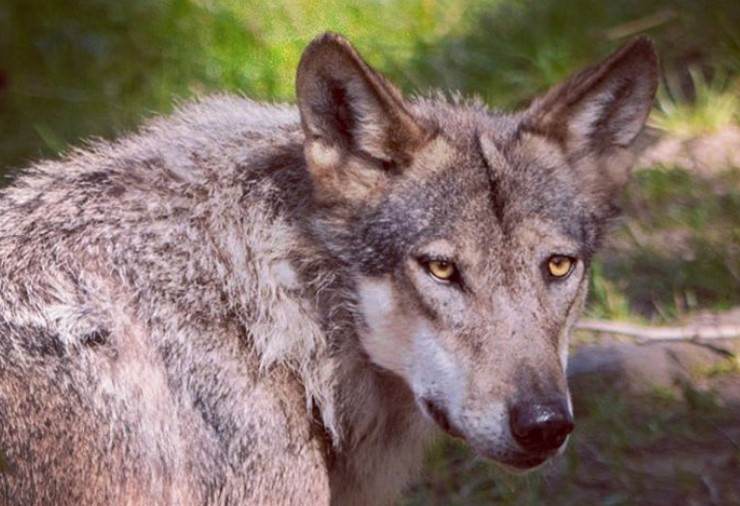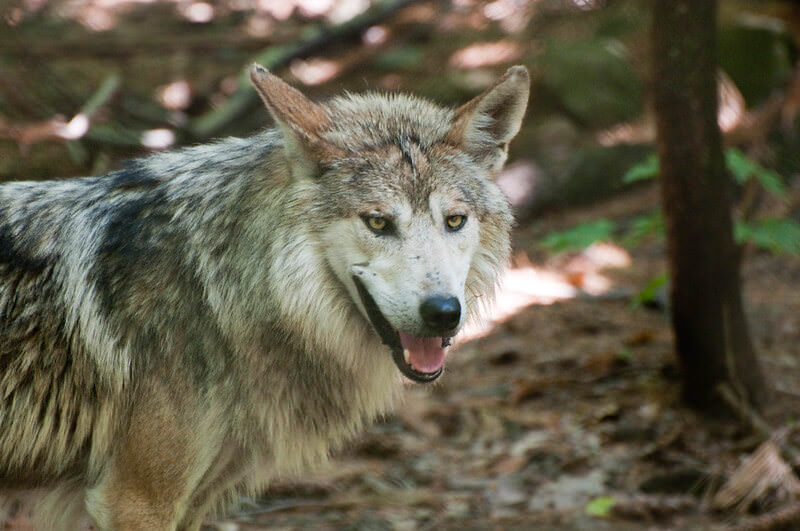Native American wolf names and meanings hold deep cultural significance in Indigenous traditions. Wolves are revered as powerful symbols of strength, loyalty, and wisdom. These names reflect the profound connection between Native American tribes and nature, offering a glimpse into their spiritual beliefs and values.
Wolves have long been admired by Native American cultures for their intelligence, hunting skills, and social behavior. In many tribes, wolves are considered spiritual guides and are often associated with qualities such as loyalty, intuition, and protection. The names given to wolves carry symbolic meanings that resonate with these traits.
This article delves into the world of Native American wolf names, exploring their meanings, cultural significance, and the spiritual connection between wolves and Indigenous communities. Whether you're fascinated by Native American culture or simply intrigued by the symbolism of wolves, this guide will provide valuable insights into the rich tapestry of wolf names and their meanings.
Read also:Go Now Moody Blues
Table of Contents
- Introduction
- Cultural Significance of Wolves in Native American Traditions
- Wolf Spirit Animals and Their Symbolism
- Common Native American Wolf Names and Meanings
- Tribal Variations in Wolf Names
- Wolf Names for Children and Families
- The Spiritual Connection Between Wolves and Humans
- Modern Usage of Native American Wolf Names
- Historical Context of Wolf Names in Native American Culture
- Conclusion
Cultural Significance of Wolves in Native American Traditions
Wolves play a vital role in Native American mythology and folklore. They are often depicted as powerful spiritual beings that embody strength, wisdom, and loyalty. Many tribes view wolves as teachers and guides, believing that they offer valuable lessons about life, survival, and community.
In some cultures, wolves are seen as protectors and guardians of the Earth. Their ability to hunt and survive in harsh environments is admired and respected. Wolves are also associated with qualities such as teamwork, communication, and adaptability, which are essential for thriving in the natural world.
Symbolism in Native American Art
Wolves frequently appear in Native American art, from totem poles to pottery and beadwork. These artistic representations often convey the spiritual and cultural significance of wolves in Indigenous communities. The intricate designs and patterns used in these artworks reflect the deep respect and admiration that Native Americans have for wolves.
Wolf Spirit Animals and Their Symbolism
For many Native Americans, wolves are considered spirit animals that offer guidance and insight. A wolf spirit animal is believed to embody qualities such as intuition, loyalty, and perseverance. People who resonate with the wolf spirit animal may feel a strong connection to nature and a deep sense of purpose.
Wolf spirit animals are also associated with themes of transformation and personal growth. They encourage individuals to embrace change and trust their instincts. By connecting with the wolf spirit, people can gain a better understanding of themselves and the world around them.
Read also:Kat Timpf Tour Dates 2023
Key Traits of the Wolf Spirit Animal
- Intuition and Perception
- Strength and Resilience
- Loyalty and Companionship
- Adaptability and Resourcefulness
Common Native American Wolf Names and Meanings
Native American wolf names are rich in symbolism and meaning. These names often reflect the qualities and characteristics that wolves are known for, such as courage, wisdom, and protection. Below is a list of some common wolf names and their meanings:
Popular Wolf Names
- Atka: A name that means "wolf" in the Inuit language. It symbolizes strength and endurance.
- Canis: Derived from the Latin word for "dog," this name is often used in Native American contexts to refer to wolves. It represents loyalty and companionship.
- Coatl: In Aztec mythology, this name means "serpent" or "wolf." It signifies wisdom and transformation.
- Makwa: An Ojibwe word for "bear," this name is sometimes used to describe wolves due to their similar traits of strength and power.
- Timber: A name that reflects the wolf's connection to the forest and natural world.
Tribal Variations in Wolf Names
Wolf names can vary significantly between different Native American tribes. Each tribe has its own unique language, traditions, and cultural practices, which influence the names they assign to wolves. For example, the Navajo tribe may use names that emphasize the wolf's role as a protector, while the Cherokee may focus on its spiritual significance.
Understanding these variations provides valuable insights into the diverse ways that Native American cultures view wolves. It also highlights the importance of respecting and preserving Indigenous languages and traditions.
Examples of Tribal Wolf Names
- Navajo: "Lobos" or "Dibe Nitsaa" (meaning "big dog")
- Cherokee: "Wa'ya" (meaning "wolf")
- Sioux: "Sunka Wakan" (meaning "sacred dog")
- Hopi: "Tsimi" (meaning "wolf")
Wolf Names for Children and Families
Many Native American families choose wolf-inspired names for their children as a way to honor their cultural heritage and pass down traditional values. These names often carry deep meanings that reflect the qualities parents hope their children will embody, such as courage, wisdom, and kindness.
Wolf-Inspired Baby Names
- Ayla: A name that means "she-wolf" in some Native American languages. It symbolizes independence and strength.
- Chenoa: Derived from the Cherokee word for "white dove," this name is often associated with peace and harmony.
- Kai: A name that means "keeper of the earth" in some Indigenous cultures. It reflects a deep connection to nature.
- Luna: A name that means "moon" and is often linked to wolves due to their nocturnal habits.
The Spiritual Connection Between Wolves and Humans
Native American cultures have long recognized the spiritual connection between wolves and humans. Wolves are seen as messengers of the spirit world, offering guidance and wisdom to those who seek it. This connection is often explored through rituals, ceremonies, and storytelling.
In many tribes, wolves are believed to possess a sixth sense that allows them to perceive things beyond the physical realm. This heightened awareness makes them valuable allies in spiritual journeys and quests for self-discovery.
Spiritual Practices Involving Wolves
- Shamanic rituals that invoke the spirit of the wolf for healing and protection.
- Ceremonial dances that mimic the movements and behaviors of wolves.
- Storytelling traditions that pass down wolf-related legends and teachings.
Modern Usage of Native American Wolf Names
In contemporary society, Native American wolf names continue to inspire people around the world. They are often used as names for pets, businesses, and even sports teams. However, it is important to approach these names with respect and understanding of their cultural significance.
Many individuals and organizations are working to preserve and honor Native American traditions by using wolf names in meaningful ways. This includes incorporating them into educational programs, cultural events, and artistic projects.
Examples of Modern Usage
- Wolf conservation groups that adopt Native American names to highlight their commitment to protecting these majestic creatures.
- Authors and artists who incorporate wolf names into their work to celebrate Indigenous culture and heritage.
- Community initiatives that use wolf names to promote environmental awareness and sustainability.
Historical Context of Wolf Names in Native American Culture
The use of wolf names in Native American cultures dates back thousands of years. These names have evolved over time, reflecting changes in language, tradition, and societal values. Historical records and oral traditions provide valuable insights into the origins and meanings of these names.
Archaeological evidence, such as ancient carvings and artifacts, also sheds light on the importance of wolves in Native American life. These findings reveal a deep and enduring connection between humans and wolves that has shaped Indigenous cultures for generations.
Conclusion
Native American wolf names and meanings offer a fascinating glimpse into the rich cultural heritage of Indigenous communities. From their spiritual significance to their practical applications, these names reflect the deep respect and admiration that Native Americans have for wolves. By exploring the world of wolf names, we can gain a greater appreciation for the interconnectedness of all living things and the importance of preserving our natural world.
We invite you to share your thoughts and experiences with Native American wolf names in the comments below. Whether you're inspired by their symbolism or simply curious about their origins, this article aims to deepen your understanding of these remarkable names and their meanings. Don't forget to explore other articles on our site for more insights into Native American culture and traditions!
References:
- Smithsonian National Museum of the American Indian
- Native Languages of the Americas
- Indian Country Today


